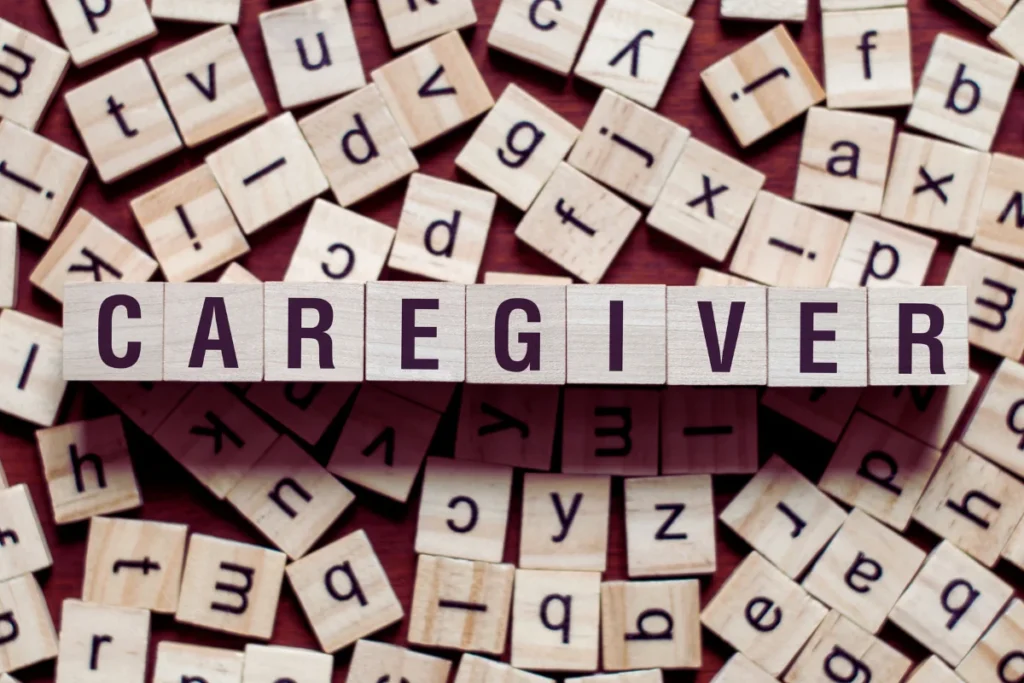A good caregiver provides more than just assistance—they bring comfort, support, and reliability. This guide covers the 10 qualities of a good caregiver, including patience, empathy, and dependability.
Whether hiring a caregiver or considering a career in care, understanding these essential traits helps in making the right choice.
To learn more about different care options, check out our guide on Types of Care Homes.
Table of Contents
What Makes a Good Caregiver?
A great caregiver brings skill, patience, and compassion to their role. They offer physical help, emotional support, and a safe environment for those in their care. Here are the top 10 qualities of a good care worker that make a real difference in providing comfort and support.
1. Patience in Caregiving
Caregiving comes with challenges, especially when supporting individuals with disabilities, memory loss, or mobility issues. Patience in caregiving helps maintain a calm and relaxed atmosphere.

A patient caregiver allows individuals to take their time with tasks. This reduces stress and supports independence. It also makes the caregiving experience more positive for everyone.
2. Effective Communication Skills
Caregivers communicate with clients, families, and healthcare professionals every day. Effective communication skills help them give clear instructions and build trust. A good caregiver
- listens carefully,
- speaks clearly, and
- offers reassurance through both words and actions.
3. Empathy and Compassion
Recognising another person’s feelings is important in caregiving. Empathy and compassion help caregivers build strong connections. They provide emotional support along with physical care. This helps clients feel valued and respected.
4. Dependability
A caregiver must be reliable. Families trust them to provide steady support. Dependability in caregiving roles means being on time and completing tasks responsibly. Caregivers should always be available when needed. This creates trust between the caregiver, the client, and their family.
5. Adaptability
Every person has different care needs. Some need full-time support, while others require occasional help. Adaptability to patient needs helps caregivers adjust their approach. They respond to changing health conditions, situations, and personal preferences.
6. Strong Work Ethic
Caring for others takes commitment. A caregiver with a strong work ethic handles responsibilities with care. They stay
- Proactive,
- pay close attention, and
- always give their best.
Their dedication helps improve a client’s daily life.
7. Physical Stamina
Caregiving requires
- lifting,
- helping with mobility, and
- standing for long hours.
Physical stamina prevents fatigue and injuries. A fit caregiver can handle tasks safely while maintaining their own well-being.
8. Problem-Solving Skills
Unexpected situations can arise at any time. Whether handling medical emergencies or daily challenges, problem-solving skills allow caregivers to think quickly and make the best decisions for their clients. Being resourceful helps individuals receive the right care without unnecessary delays.
9. Emotional Stability
Caregiving can be emotionally tough. Watching someone face illness, disability, or ageing requires emotional stability. A caregiver must stay calm and offer support without feeling overwhelmed.
10. Knowledge of Medical and Personal Care
A good caregiver knows basic health care. This includes
- medication,
- hygiene, and
- safety practices.
Knowledge of medical and personal care helps prevent risks and keeps individuals comfortable.
Common Caregiver Responsibilities and Required Skills
Caregivers perform a variety of tasks that require specific skills. The table below outlines key responsibilities and the corresponding skills needed:
| Responsibility | Required Skill |
| Assisting with daily tasks | Patience, empathy |
| Managing medications | Attention to detail, dependability |
| Supporting mobility | Physical stamina, adaptability |
| Providing companionship | Communication, emotional stability |
| Handling emergencies | Problem-solving, quick thinking |
How These Qualities Improve Caregiving
A caregiver with these qualities offers more than physical support. They also provide emotional and mental reassurance. Families feel at ease knowing their loved ones are in caring hands. Caregivers who show patience, communication, and adaptability make a real difference.
Key Differences: Care Homes vs. Nursing Homes
| Aspect | Care Homes | Nursing Homes |
| Level of Care | Personal care and support | Medical and nursing care |
| Staff | Care assistants | Registered nurses and doctors |
| Cost | Lower compared to nursing homes | Higher due to medical services |
| Suitable For | Those needing help with daily tasks | Those with medical conditions needing supervision |
| Living Arrangement | Shared or private rooms | Often shared with medical facilities |
If you’re learning about care options, read Is a care home cheaper than a nursing home? to find the best choice.
Choosing the Right Caregiver

When choosing professional care, these qualities matter. Whether considering in-home care or a care home, caregivers should have the right skills. A skilled professional provides support that brings comfort and dignity.
If you’re unsure Who qualifies for a care home in the UK, this guide explains the eligibility requirements.
Conclusion
A good caregiver offers more than just support—they bring patience, adaptability, and emotional strength to daily care. These 10 qualities of a good caregiver help create a safe and comfortable environment.
If you need reliable and compassionate care, Metro Care UK is here to help. Our dedicated team provides professional support suited to individual needs. Contact us today to discuss how we can assist your loved one.
To make an informed choice, read our blog on the pros and cons of care homes for helpful insights.
FAQs
What are the top 3 strengths of a caregiver?
The three key strengths of a caregiver are patience, empathy, and dependability. Patience helps them stay calm in challenging situations. Empathy allows them to understand emotions and provide meaningful care. Dependability means they are always there when needed, giving families confidence that their loved ones are in safe hands.
What is the most important skill for a caregiver?
Effective communication is crucial for a caregiver. It helps them understand client needs, provide clear instructions, and build trust with families and healthcare teams. Good communication also reassures clients, making them feel heard, respected, and comfortable in their daily care.
What is your best quality as a caregiver?
A caregiver’s best quality is their ability to connect with clients. Whether through kindness, patience, or problem-solving, a great caregiver makes individuals feel valued and supported. Their dedication helps create a warm and positive environment, improving the well-being of those they care for.

